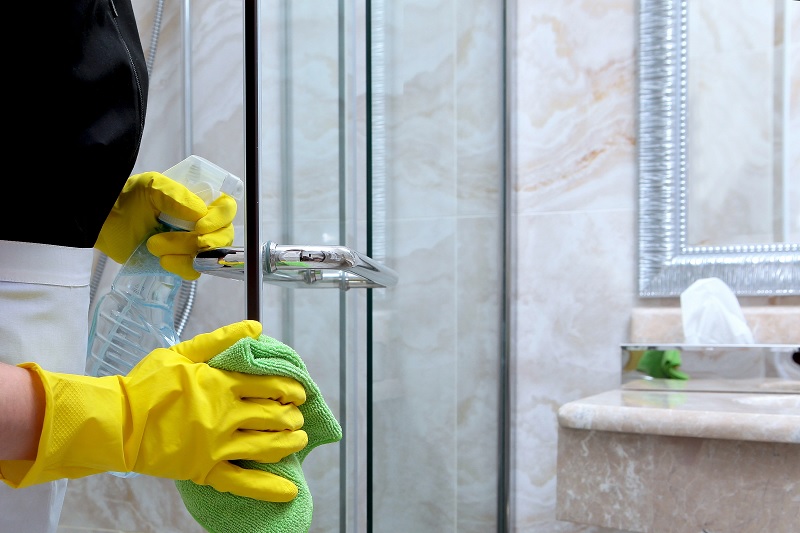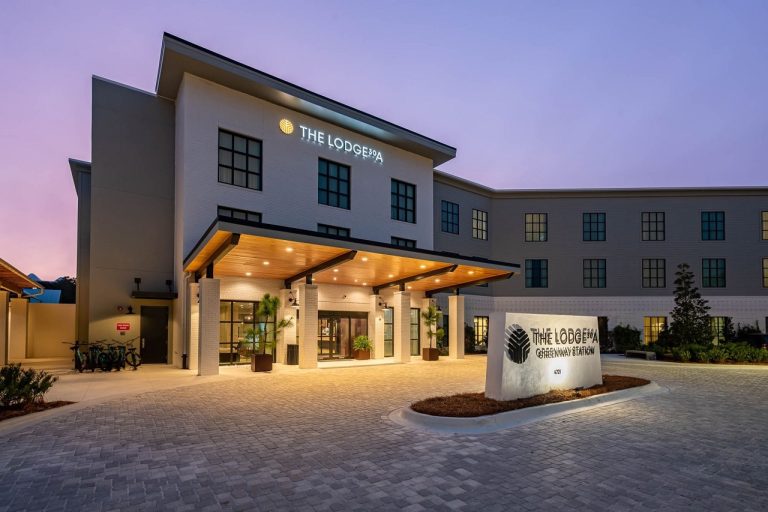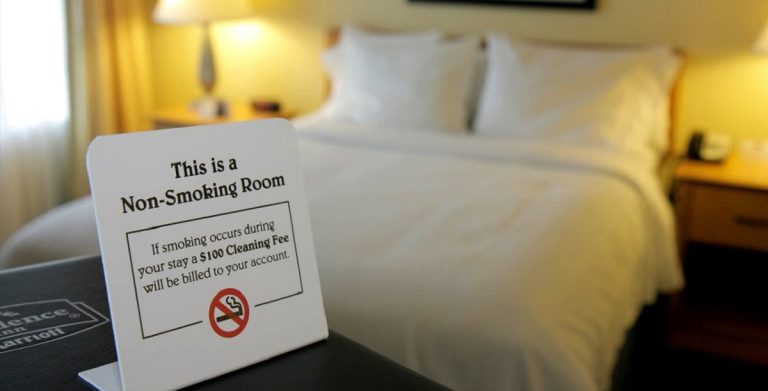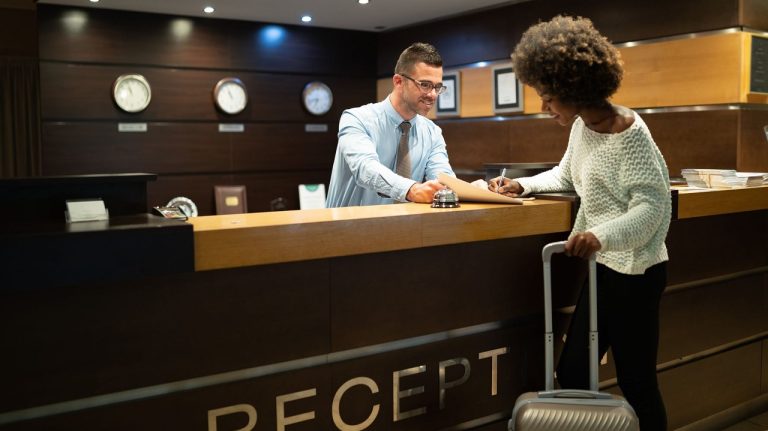Hotel Restrictions In Florida Explained
When you check into a Florida hotel, you might not realize the extensive web of regulations and legal requirements that govern every aspect of your stay.
From the moment you step into the lobby to the time you leave your room, hotels in the Sunshine State are bound by a complex set of restrictions designed to ensure your safety, comfort, and well-being.
These regulations, enforced by state agencies and shaped by both statutory law and court precedents, impose specific duties on hotels that go beyond those of typical businesses.
They cover everything from fire safety and security measures to food service standards and even human trafficking awareness training for staff.
Let’s go over the key regulations that keep Florida’s hospitality industry in check and protect guests from Orlando to Miami and beyond.
Legal Framework Governing Florida Hotels

When it comes to hotel regulations in Florida, it’s not just about making sure your towels are fresh, and your room is clean.
There’s a whole legal framework in place to ensure your stay is safe and comfortable. Let’s break it down into two main categories:
1. State Statutes and Regulations
Florida takes its hospitality industry seriously, and for good reason. With millions of visitors each year, the state has put in place specific laws to regulate hotels.
The main piece of legislation you should know about is Chapter 509, Part 1 of the Florida Statutes. This law covers everything from licensing and inspection to the basic standards hotels must meet.
But it’s not just one law. The Florida Department of Business and Professional Regulation (DBPR) also creates rules that hotels must follow.
These rules get pretty specific, covering things like how often sheets need to be changed and what kind of fire safety equipment must be in place.
2. Federal Laws Applicable to Hotels
While Florida has its own set of rules, there are also federal laws that hotels must follow. These laws mainly focus on issues like:
- Preventing discrimination (thanks to federal civil rights laws)
- Ensuring accessibility for guests with disabilities (as required by the Americans with Disabilities Act)
- Meeting fire safety standards (set by the Federal Hotel and Motel Fire Safety Act)
These federal laws work alongside Florida’s state regulations to create a comprehensive safety net for hotel guests.
Safety and Security Regulations For Hotels In Florida

When you’re on vacation, the last thing you want to worry about is your safety. Luckily, Florida hotels have to follow strict safety and security regulations.
Fire Safety Requirements
Fire safety is a top priority in Florida hotels. The state requires hotels to have comprehensive fire prevention and response systems in place.
This includes fire alarm systems that can quickly alert guests in case of an emergency, as well as fire extinguishers placed strategically throughout the property.
Many hotels are also required to have automatic fire sprinkler systems, providing an extra layer of protection.
In your room, you’ll find smoke alarms installed to detect any signs of fire. These measures work together to create a safer environment, allowing you to sleep soundly knowing that precautions are in place.
Building and Structural Safety
Beyond fire safety, Florida hotels must ensure their buildings are structurally sound and well-maintained. This is particularly important in a state known for its beaches and high-rise hotels.
If you’re staying in a multi-story building, you can rest assured that the balconies undergo regular inspections to ensure they’re safe and secure.
Inside the hotel, proper ventilation and temperature control are mandatory, ensuring your comfort regardless of the Florida heat outside. Adequate lighting in halls, entrances, and stairways is also required, helping you navigate the hotel safely at any time of day or night.
Security Measures
Your personal security is also a top priority under Florida hotel regulations. Hotels are required to install secondary locking devices on all guest room doors, providing an extra layer of privacy and protection.
They must also maintain a guest register for at least two years, which can be crucial in case of any security incidents.
Moreover, Florida law requires hotels to provide adequate security measures to protect guests from criminal acts. This might include security personnel, surveillance systems, or other measures designed to keep you safe during your stay.
Health and Sanitation Standards

Maintaining high standards of health and sanitation is crucial in the hospitality industry, and Florida takes this seriously. The state has implemented strict regulations to ensure that your hotel stay is not only comfortable but also hygienic and safe.
Food Service Regulations
If your hotel offers food service, whether it’s a full-service restaurant or just room service, it must adhere to additional regulations. These rules cover everything from food storage and preparation to the training of staff members.
Hotels with food service facilities must maintain proper food storage areas and ensure that food is kept at safe temperatures to prevent spoilage and foodborne illnesses.
The staff handling food must undergo regular training in food safety practices, and there must be at least one certified food manager on duty.
These regulations mean that when you order that late-night snack or enjoy a meal at the hotel restaurant, you can be confident that it’s been prepared under strict health guidelines.
Cleanliness and Hygiene Requirements
When it comes to the cleanliness of your room and the hotel in general, Florida doesn’t cut any corners. Hotels are required to provide clean towels and bed linens, which must be changed regularly. Mattresses and bedding must be in good condition and sanitized between guests.
The regulations also extend to the overall cleanliness of the establishment. Hotels must maintain proper pest control measures to keep the premises free of vermin.
Plumbing systems must provide both hot and cold potable water, ensuring you have access to clean water throughout your stay.
These stringent cleanliness and hygiene standards help ensure that your room is a clean and comfortable sanctuary during your Florida vacation.
Licensing and Inspection Requirements
To operate legally in Florida, hotels must navigate a comprehensive licensing and inspection process. This system helps maintain high standards across the industry and protects guests like you.
DBPR Licensing Process
Before a hotel can welcome its first guest in Florida, it needs to obtain the proper licenses from the Department of Business and Professional Regulation (DBPR). This process involves more than just filling out paperwork.
Hotels must apply for appropriate licenses, which often include both lodging and food service permits if the hotel offers dining options.
But getting the paperwork in order is just the beginning. Before receiving their license, hotels must pass initial inspections to prove they meet all the necessary standards.
This includes everything from safety measures to cleanliness protocols. Only after clearing these hurdles and paying the required fees can a hotel officially open its doors to guests.
Regular Inspections and Compliance
Obtaining a license is not a one-and-done deal. Florida hotels are subject to regular inspections to ensure they continue to meet the state’s high standards.
These inspections are comprehensive, covering all aspects of hotel operations from the cleanliness of rooms to the safety of facilities and the practices in food service areas.
Hotels that fail to meet these standards during inspections can face consequences. These might range from fines for minor infractions to more serious penalties like license suspension for major violations.
This ongoing oversight helps maintain the quality and safety of Florida’s hotel industry, giving you peace of mind during your stay.
Guest Rights and Hotel Responsibilities In Florida

As a guest in a Florida hotel, you have certain rights, and the hotel has specific responsibilities towards you. Understanding this relationship can help you navigate your stay with confidence.
Duty of Reasonable Care
Florida law imposes what’s known as a “duty of reasonable care” on hotels. This legal concept means that hotels are responsible for maintaining their premises in a reasonably safe condition. They must take steps to prevent foreseeable harm to guests and warn about any known dangers.
For example, if there’s a wet floor in the lobby, the hotel should put up a warning sign to prevent slip and fall accidents. If there’s a known issue with a piece of equipment in the fitness center, the hotel should either fix it promptly or warn guests not to use it.
However, it’s important to note that hotels are not considered all-powerful guardians. They’re not expected to foresee and prevent every possible danger. The law recognizes that some level of risk is inherent in daily life, even on vacation.
Liability for Guest Injuries
If a guest is injured due to the hotel’s negligence – that is, if the hotel fails in its duty of reasonable care – the hotel may be held liable.
This could apply to a range of situations, from accidents caused by poorly maintained facilities to injuries resulting from inadequate security measures.
For instance, if you slip and fall on a wet floor that wasn’t properly marked, or if you’re injured by a faulty piece of equipment in the hotel gym, the hotel might be held responsible for your injuries.
However, it’s a two-way street. As a guest, you also have a responsibility to exercise reasonable care for your own safety. If you ignore clear warning signs or engage in risky behavior, it could affect any potential claim against the hotel.
If you do experience an injury during your stay, it’s important to report it to hotel management immediately and seek medical attention if necessary. Documenting the incident can be crucial if you need to pursue a claim later.
Specialized Regulations for Bed and Breakfasts
If your Florida getaway involves a stay at a charming bed and breakfast (B&B), you should know that these establishments have their own set of regulations.
While many of the rules are similar to those for larger hotels, there are some key differences that reflect the unique nature of B&Bs.
Size and Service Limitations
Florida defines a bed and breakfast as a family home structure with no more than 15 sleeping rooms. This size limitation helps maintain the intimate, homey atmosphere that B&Bs are known for.
Despite their smaller size, B&Bs are still allowed to offer meal services to guests, typically including the breakfast that gives them their name.
Licensing and Safety Requirements
Like larger hotels, B&Bs in Florida typically need both lodging and food service licenses. However, the specific requirements may differ slightly.
For instance, B&Bs with 16 or fewer occupants have somewhat different fire safety requirements compared to larger hotels. This reflects the residential nature of many B&B properties while still ensuring guest safety.
These specialized regulations allow B&Bs to maintain their unique charm and personalized service while still providing a safe and comfortable environment for guests.
Human Trafficking Awareness and Training
In recent years, Florida has taken proactive steps to combat human trafficking, recognizing the important role that the hospitality industry can play in this effort.
As of 2019, all public lodging establishments in Florida, including hotels and B&Bs, are required to provide annual training on human trafficking awareness to certain employees.
This training requirement applies specifically to employees who perform housekeeping duties or work at the front desk or reception area.
These staff members are often in the best position to notice signs of potential trafficking activity. New employees in these roles must receive this training within 60 days of starting work.
While this regulation might not directly impact your stay, it’s an important measure that helps make Florida’s hospitality industry safer for everyone.
It demonstrates the state’s commitment to addressing this serious issue and the role that hotels can play in identifying and reporting suspicious activities.
Conclusion
Whether you’re soaking up the sun on a Miami beach, exploring the magic of Orlando’s theme parks, or enjoying the serene Gulf Coast, you can rest easy knowing that Florida’s hotel regulations are working behind the scenes.
From safety measures to cleanliness standards, these regulations are designed with your well-being in mind. Remember, while hotels have many responsibilities, you also play a role in ensuring a safe and enjoyable stay.
Be aware of your surroundings, report any concerns to hotel management, and don’t hesitate to ask questions if you’re unsure about something.






